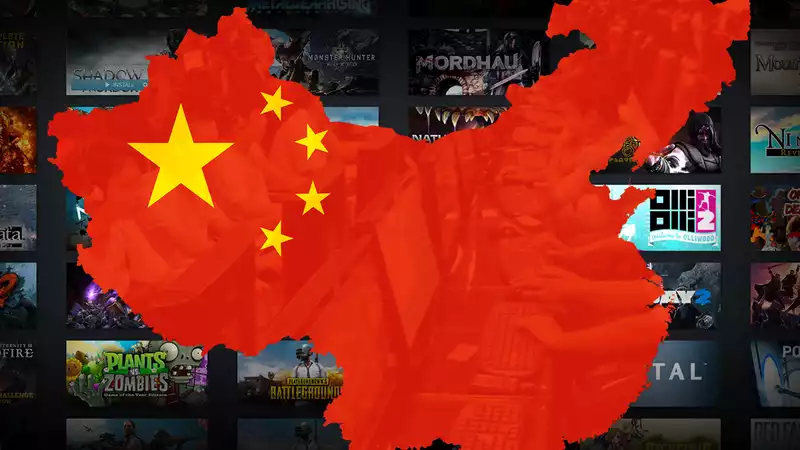Simplified Chinese is now the largest language population on Steam, according to Valve's December 2019 Steam Hardware and Software Survey. Each month, this optional survey collects basic system configuration data on a subset of Steam's 90 million monthly active users, from CPUs in use to hard disk space available. The survey also collects data on which language users have their Steam client set to, which until now has been overwhelmingly English, typically accounting for about 30-40% of users.
That changed in December 2019 when Simplified Chinese users surged to the number one spot. Simplified Chinese is now the language of choice for 37.8 percent of Steam users surveyed, up significantly from 14.4 percent in last month's survey. As a result, English users shrank to 30.4 percent.
We reached out to Valve to clarify these results, but this may be the first time Simplified Chinese has overtaken English as the dominant language on Steam.
Steam Hardware's research is not scientific and not always a reliable source. In April of 2018, for example, Valve corrected a problem in the way it collected survey data that had been skewing the results for almost an entire year. Normally, the survey collects data from users once a year, but Valve discovered a flaw in that method thanks to the way Asian internet cafes manage their PCs. Briefly, the PCs in Asian Internet cafes allowed users to complete the survey multiple times, resulting in duplicate entries and skewing the results.
Not surprisingly, this caused major problems. This is because Steam's hardware survey is the largest of its kind for PC gamers, and because it tracks information such as what percentage of Steam users are using Intel or AMD CPUs, the results are often confused with the overall market share. However, AMD's Scott Herkelman disputes that Valve's methodology is flawed and that Steam's hardware survey does not show actual market share.
One might speculate that a similar flaw may be responsible for the sudden spike in Simplified Chinese users on Steam in December 2019. While hardware survey results from previous months can only be found using the Wayback Machine, I spent some time digging through the past few years to track the growth of Chinese language users; in 2018, Simplified Chinese language users were typically the second largest demographic, making up 20-30% of survey respondents Simplified Chinese topped the Steam hardware survey only from July 2017 to April 2018, which is the exact same time period that Valve has stated that the Steam hardware survey results were tapped and duplicate reports were collected from PCs in Asian internet cafes This is the exact same period of time, which is responsible for the sudden spike.
However, if the December 2019 results are accurate, they correlate with other data suggesting a significant increase in Chinese users on Steam. Industry analyst Daniel Ahmad reported that Chinese users on Steam swelled to over 30 million in 2018.
This is partially due to increasingly strict government regulations and censorship, which has gone so far as to completely freeze the application process for publishing licenses that must be obtained before a game can be sold in China. Steam, however, is a mysterious and valuable loophole in China's censorship firewall. For the past four years, Chinese gamers have flocked to Steam to play games that are neither censored nor regulated. Most popular is PlayerUnknown's Battlegrounds, which first launched in 2017 and has boomed in China; in June 2018, PUBG reportedly sold more than 50 million copies worldwide, and Steam Spy estimated to be Chinese (note: this information is only available to Steam Spy's Patreon supporters).
This coincides with the growing number of Chinese-only games making Steam's top sellers list. Last year, the life-sim "Chinese Parents" and the strategy RPG "Scroll of Taiwu" were huge hits, selling more than 1 million copies each, despite not having English versions. More recently, the open-world RPG "Sands of Salzaar" was a huge hit, selling over 50,000 copies in less than a week.
We contacted Valve to get some clarity on these results. We will update this article as soon as we hear back.
.

Comments